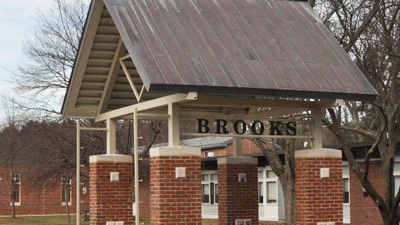Lincoln officials are reworking a document from the rejected school building project in preparation for resubmitting it to the state, and town residents will be asked for an as-yet-undetermined sum of money for project planning expenses at Town Meeting later this month.
The School Committee last week began going over the town’s original Statement of Interest (SOI) preparatory to making updates, and the Board of Selectman will do the same at their meetings on March 11 and March 18. The School Committee will schedule a one-hour community forum as part of its March 21 meeting to answer questions about the SOI and the warrant article to go before voters at Town Meeting on March 23.
The committee will also vote on March 21 on whether to submit the revised SOI to the Massachusetts School Building Authority. That agency recently told the town that the “L-shaped proposal” would not qualify for preapproved funding and said the town would have to start over with the state approval and funding process for a school building project.
Warrant article 9 asks for money to “[conduct] architectural/engineering studies and designs to address facilities issues of the Lincoln School” without specifying an exact amount. If the MSBA had said yes to the L-shaped proposal, that request would have been $400,000 for design documents required before going out to bid on construction.
Now, however, residents will be asked in Article 10 for a different sum of money to proceed with planning—although the dollar amount of that request won’t be known until shortly before Town Meeting, said School Committee chairman Jennifer Glass. However, she emphasized that “by no stretch of the imagination” would the request be as high as $400,000 and would in fact be “a lot less.”
In the last round of approvals, funding and votes for the school project, the town submitted its SOI in 2008. Based on that, the MSBA invited the town in fall 2009 to submit a feasibility study, and Lincoln residents voted to fund that study in March 2010. The town vote on funding the project itself took place in November 2012 at a special Town Meeting, where the measure failed to garner the necessary two-thirds majority.
Glass noted that Lincoln took longer than expected to gets its construction funding request before residents. Also, the MSBA is likely to act more quickly this time around, since it has already acknowledged the need for a school building project of some sort. Given these variables, Lincoln could be looking at a fall 2013 acceptance of a new feasibility study and perhaps another town vote on construction funding in late 2015; if that vote is successful, the project could be put out to bid in January 2016, Glass said.
More spending ahead
Given the delay of approximately three years in starting a major renovation and addition project (if residents eventually do approve such a course), the school will have to “patch things up and make them continue,” Glass said. Even if the original project had gone ahead, the school would have needed a new main fire alarm panel immediately. That $36,000 expenditure appears in Article 9 of the Town Meeting warrant.
Other school-related expenditures in that warrant article include $105,000 to replace wooden window curtain walls and insulate masonry walls in the Hartwell building, and $40,000 for increased security measures in the wake of the Newtown, Conn., school shooting. Glass declined to specify what those measures might be, though she said they do not include armed guards.
Article 12 also asks for $75,000 for the annual classroom rehabilitation and preventive maintenance program. That amount would have been only $50,000 if the building project had been approved by the state, but the town’s Capital Planning Committee recently green-lighted the higher amount, Glass said.
“Even though it’s a big-ticket item and I totally understand people’s shock” at the project’s $49 million price tag ($28 million from by Lincoln residents and the other $21 million from the state), “I still believe in the long run that the right thing for the building, for [town] finances and for [minimizing] disruption for the kids is to do this as one project that’s carefully planned and thought through and not done in a piecemeal fashion,” Glass said.
